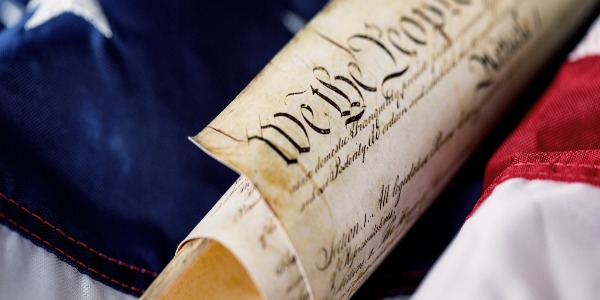2 min read
Waylon Bailey's Legal Battle for Constitutional Rights Ends in Victory
Joe Whitcomb
:
November 03, 2023

In a landmark legal battle, Waylon Bailey stood up for his constitutional rights by taking legal action against Detective Randell Iles and Sheriff Mark Wood. The dispute arose from a Facebook post where Bailey made a sarcastic remark about sheriff's deputies shooting individuals "infected" with COVID-19 on sight. Initially, the district court ruled in favor of Iles and Wood, but the court of appeals later reversed this decision, recognizing the violation of Bailey's First and Fourth Amendment rights and sending the case back for further consideration.
The court of appeals resolutely concluded that Bailey's Facebook post did not constitute incitement or a true threat, both of which would have been exempt from First Amendment protection. Moreover, the court found that Iles did not have probable cause to make an arrest without a warrant, as required by Louisiana's terrorizing statute. As a result, Iles was denied qualified immunity from the false arrest claim.
Delving deeper into the constitutional protections at stake, the court emphasized that Bailey's speech on Facebook was undeniably protected by the First Amendment. Drawing a comparison to another case involving Facebook posts, United States v. Perez, the court underscored the distinct nature of Bailey's post. Bailey firmly asserted that his First and Fourth Amendment rights were violated during his arrest, specifically naming Iles and Wood as the defendants. Disagreeing with the district court's ruling, the court of appeals scrutinized Louisiana's terrorizing statute and unequivocally determined that Iles had violated Bailey's constitutional rights by arresting him without probable cause. Additionally, the court deemed Iles' actions objectively unreasonable and declared that his claim to qualified immunity was inapplicable.
The court sharply criticized the district court's consideration of Iles' subjective beliefs and the social conditions surrounding the COVID-19 pandemic when determining probable cause. Furthermore, the court distinguished Bailey's case from another case cited by Iles, Stokes v. Matranga, highlighting the unique circumstances and legal implications at hand. Ultimately, the court of appeals unequivocally concluded that Iles was not entitled to qualified immunity since no reasonable officer could have found probable cause to arrest Bailey under the Louisiana terrorizing statute.
In a thorough exploration of First Amendment rights, the court of appeals delved into the concepts of parody and rhetorical hyperbole, affirming the protection of speech. To establish a claim for First Amendment retaliation, the plaintiffs must demonstrate engagement in constitutionally protected activity, injury caused by the defendants' actions, and adverse actions substantially motivated against the exercise of constitutionally protected conduct. In this case, the court determined that the district court erred in concluding that Bailey's speech was not constitutionally protected. The court found fault with the district court's decision to grant Iles qualified immunity, given the lack of probable cause for Bailey's arrest. In alignment with Bailey's position, the court highlighted the district court's error, regardless of how the claim was framed, thus affirming the impropriety of Iles' qualified immunity. The court of appeals ultimately concluded that Iles had violated Bailey's well-established First Amendment rights to engage in speech.
In a remarkable turn of events, the court of appeals reversed the district court's grant of summary judgment to the defendants on Bailey's state law false arrest claim. This decision marked a pivotal moment in the legal battle, ensuring that Bailey's rights were vindicated and justice was served.


